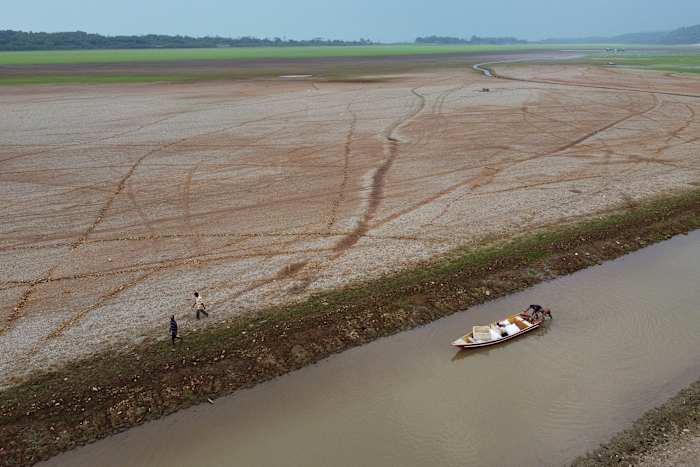An amendment to Peru’s Forestry and Wildlife Law has sparked significant controversy, with environmental and Indigenous groups voicing strong opposition. They argue that the new legal provisions could lead to increased deforestation in the Amazon rainforest, all in the name of economic development. The amendment removes the necessity for landowners or companies to obtain state authorization before converting forested land to other uses, raising concerns about the potential legitimization of past illegal deforestation.
Critics emphasize the dangers of “privatizing” land traditionally considered national patrimony, as this shift may set a harmful precedent. Supporters contend that the amendment, enacted in March, aims to stabilize Peru’s agricultural sector by providing farmers with greater legal certainty. However, responses from the agribusiness sector have been limited, with one representative declining to comment.
Peru, home to the second-largest share of the Amazon rainforest, possesses one of the planet’s most biodiverse regions. The area is inhabited by over 50 Indigenous communities, some of whom live in voluntary isolation. These communities play a crucial role in preserving ecosystems, which help mitigate climate change by absorbing carbon dioxide. Passed in 2011, the original Forestry and Wildlife Law mandated state approval and environmental assessments before altering forest land use. Recent amendments, however, have diluted these protections, now allowing for retroactive legalization of past deforestation without official approval.
The Constitutional Court of Peru upheld the amendment despite a constitutional challenge. Although parts of the amendment were struck down, the provision validating past illegal land-use changes remains intact. Legal experts warn that this aspect poses significant risks, as it undermines Indigenous rights and environmental protections.
Support for the amendment mirrors dynamics observed in Brazil under former President Jair Bolsonaro, where environmental protections were weakened to promote agribusiness. In Peru, agribusiness interests, land grabbers, and individuals linked to illegal mining and drug trafficking have supported the reform. Small and medium farmers, concerned about land security, have also joined the effort.
Concerns have been raised about the amendment’s alignment with European Union regulations. The Peruvian government suggests the changes are necessary to comply with upcoming EU regulations that require proof that imports such as soy, beef, and palm oil are not sourced from illegally deforested land. However, EU officials have denied any connection between the legal amendments and their regulations, emphasizing the need for traceability and sustainability in products.
Indigenous communities in Peru view the law as a direct threat to their territories and ways of life. Civil society groups are preparing to take the case to international tribunals, arguing that the ruling sets a dangerous precedent for other countries seeking to bypass environmental law under the guise of reform.
The Evolving Landscape
The amendment to Peru’s Forestry and Wildlife Law could have broad implications for various sectors and communities. Environmentalists fear an increase in deforestation might significantly impact global climate stability by reducing the Amazon’s capacity to absorb carbon emissions. For Indigenous communities, these changes represent a profound threat to their cultural heritage and livelihoods, potentially leading to increased conflicts over land rights.
For the agricultural sector, the amendment may provide short-term legal benefits and land security, but it also risks international backlash. Markets sensitive to deforestation issues, such as the European Union, could impose stricter trade barriers, affecting Peru’s agricultural exports. Additionally, the potential for policy shifts could deter investment and complicate compliance with emerging global sustainability standards.
The controversy surrounding the amendment highlights the complex balance between economic development and environmental preservation. It underscores the need for policies that recognize and integrate the rights of Indigenous peoples and the long-term ecological health of the Amazon, ensuring sustainable development that benefits all stakeholders.














